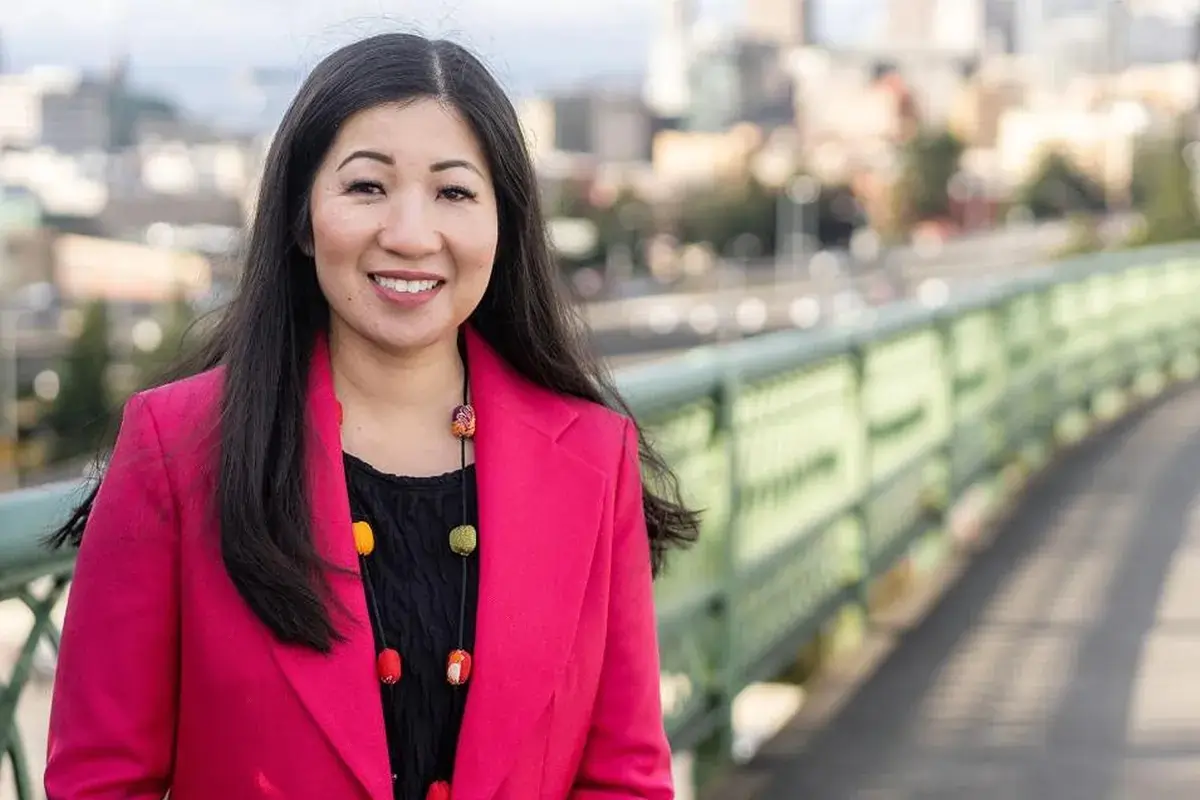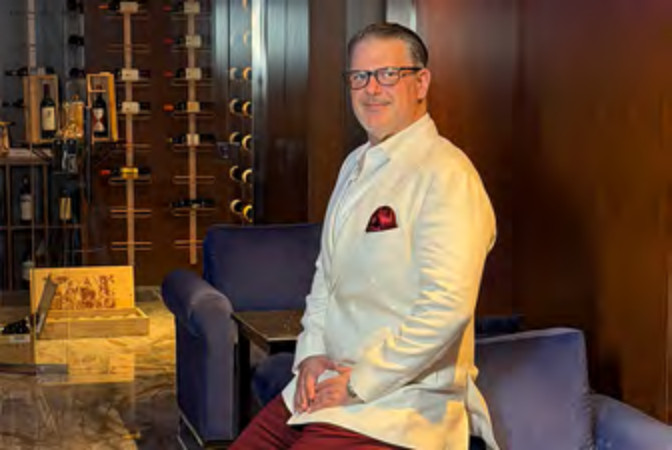
Tanya Woo is a prominent civic leader, entrepreneur, and advocate, renowned for her dedication to Seattle's communities. Born into a family with deep roots in the Chinatown-International District, Woo's heritage dates back to 1887, when her ancestors were among the first Chinese American families to settle in Seattle. Growing up in her family's bakery imbued her with a profound appreciation for the challenges faced by immigrant communities and the significance of cultural preservation, safety, and economic opportunity.
Her journey into public service was shaped by her work as a community organizer and historic preservationist, becoming a central figure in efforts to improve public safety, support vulnerable residents, and prevent displacement. Woo's leadership in these endeavors, including the redevelopment of historical buildings and founding a community watch group, has earned her widespread respect across the city.
This article is an interview with Woo, delving into her background, journey, and insights as a community leader.
What does your typical day look like, and how do you make it productive?
My days are a balance of policy work, community engagement, and direct service. Whether I’m in meetings with city officials or walking the streets of Seattle's Chinatown-International District handing out supplies and checking on neighbors, my focus is always on building relationships and addressing real needs. I make each day productive by staying grounded in purpose—asking how I can be of service, listening deeply, and taking concrete steps to make systems more just and communities more connected.
How do you stay informed about community needs and emerging policy issues?
I stay informed by being present in the neighborhoods I serve. Weekly mutual aid walks, local events, and community meetings are my pulse points. I also maintain ongoing conversations with nonprofit leaders, small business owners, and residents who don’t always feel heard by traditional channels. Their lived experience is a powerful source of insight, and I always strive to center those voices in policy conversations.
Can you recall a significant challenge or failure you faced in your public service or business endeavors and how you overcame it?
One of the biggest challenges was rebuilding the Louisa Hotel after the 2013 fire. We were told—especially as a family of color—that we wouldn't succeed. But we did. We transformed a historic building into affordable housing while honoring its deep cultural legacy. It taught me that perseverance, community collaboration, and a refusal to accept "no" can yield transformative results.
What is your approach to initiating a new community project or policy initiative?
I start with listening—walking the neighborhood, hearing from residents, and identifying root issues. From there, I collaborate with community partners to co-design solutions that are both bold and pragmatic. Whether it’s addressing public safety or economic displacement, I focus on policies rooted in lived experience and centered on equity.
What is the toughest decision you've had to make in the last few months? What was the outcome? Would you do anything differently today?
Deciding whether to run for re-election after being appointed to the Council was a difficult decision. I chose to run because I believed deeply in giving our communities a voice. Though I wasn’t elected, I don’t regret the decision—I’m proud of the work we accomplished and the issues we brought to the forefront. I wouldn’t change the choice to show up and fight for representation.
What was the most challenging job you ever had, and what did you learn from it?
Rebuilding the Louisa Hotel after the fire stands out. It tested every part of me—from navigating city bureaucracy to overcoming public doubt. But it also brought me closer to my roots and taught me the power of collective resilience. That experience shaped my understanding of what real leadership and legacy mean.
Tell us about a skill you taught yourself. How did you go about learning it?
Public speaking wasn’t something that came naturally to me. I had to work on it—watching other leaders, practicing constantly, and learning how to speak from both my heart and my experience. Over time, I’ve learned to embrace the power of my voice and use it to advocate for those who often go unheard.
Who are the individuals in your life or career who have had the greatest impact on you, and how?
My father was my greatest role model—he was both a small business owner and a community leader. Watching him serve others with humility shaped my understanding of leadership. I’ve also been deeply influenced by figures like Councilmember Cheryl Chow and Uncle Bob Santos, who showed me what it means to lead with courage, compassion, and accountability.
What do you believe contributes most to your effectiveness as a community leader and public servant?
I lead with empathy, consistency, and lived experience. I don’t just advocate from behind a desk—I walk the streets, administer Narcan, perform CPR, and support neighbors directly. People know I will show up, listen, and act with integrity. That trust and groundedness make the work more effective—and more meaningful.
What’s a piece of advice, quote, or lesson that has stayed with you throughout your career, and how has it shaped your approach to leadership?
“Advocacy is love in action.” That’s a lesson I learned from my mentors and through the legacy of community leaders like Donnie Chin. It reminds me that leadership is about care, courage, and showing up—even when the system feels broken. I carry that with me in every decision, every policy, and every conversation.
This Q&A provides a glimpse into Woo's unwavering commitment to community and highlights her strategic approach to leadership and advocacy, which continues to inspire those around her.
What are some of your most notable achievements that you feel have made a significant impact on Seattle's communities?
One of the achievements I'm most proud of is the successful redevelopment of the Louisa Hotel into affordable housing while preserving its historical significance. This project was about more than just bricks and mortar—it was about restoring a piece of our community's history and providing much-needed housing in a neighborhood that has faced significant challenges. Additionally, founding the community watch group has been crucial in fostering a sense of safety and mutual support in the Chinatown-International District.
How have you managed to integrate your background in business and historic preservation into your public service roles?
My entrepreneurial experience has taught me the importance of adaptability, resource management, and strategic planning, all of which are vital in public service. Historic preservation has deepened my appreciation for the cultural and historical narratives that shape communities. These perspectives are essential when advocating for policies that respect the past while addressing current needs and future possibilities. I always aim to ensure that economic development is inclusive and considers the histories and identities of the communities it touches.
Looking ahead, what vision do you have for the future of Seattle, especially in terms of community development and policy?
I envision a Seattle where all communities thrive equitably, with policies that support holistic well-being, safety, and opportunity for everyone. This includes addressing homelessness and housing affordability head-on, promoting sustainable economic growth, and ensuring public spaces reflect and serve our diverse populations. My goal is to continue advocating for pragmatic solutions that bridge divides and bring together government, businesses, and grassroots organizations to create lasting change.
As someone deeply rooted in Seattle's history, how do you see the city balancing growth with cultural preservation?
Balancing growth with cultural preservation is about making conscious choices that respect and honor our city's rich history. It's vital to involve community voices in planning and decision-making processes, especially those that have historically been marginalized. By integrating community input and prioritizing projects that elevate cultural heritage, Seattle can grow in ways that are both innovative and respectful of its past.
What advice would you give to emerging leaders who wish to make a difference in their communities?
I would advise them to lead with empathy and integrity, always being willing to listen and learn from those they serve. True leadership is grounded in service and requires showing up consistently, even when challenges seem insurmountable. Building strong relationships and fostering collaboration across different sectors can amplify their impact and help create more inclusive, responsive communities.
How do you think civic engagement can be improved at the neighborhood level?
Civic engagement starts with making sure every voice is heard, especially those who might feel marginalized. This can be achieved by encouraging participation in local meetings, creating forums for dialogue, and ensuring transparency in decision-making processes. Fostering trust and openness at the neighborhood level can empower residents to take active roles in shaping their communities and ensuring their needs are met.
Finally, what keeps you motivated in your work despite the challenges?
The deep ties to my community and the responsibility I feel to my ancestors and neighbors keep me motivated. Witnessing the resilience and creativity of the people I work with daily inspires me. Knowing that my efforts contribute to a larger legacy of advocacy and empowerment gives me the strength to continue pushing for progress, even in the face of setbacks.
Tanya Woo remains a steadfast advocate for Seattle's communities, driven by a deep-rooted commitment to cultural preservation and equitable development. Her journey reflects a blend of heritage and innovation, inspiring future generations of leaders to actively engage with their communities and champion meaningful change.


